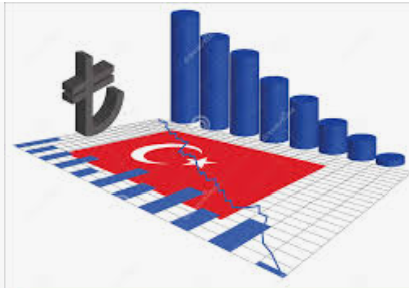The most important data expected this week was the national income data for the third quarter of 2023. The announced data reflects the effects of the policies followed both before and after the election on the economy. Budget expenditures will sustain the economy–which slowed down on a quarterly basis in the 3rd quarter–in the coming months. If the stabilization program continues in 2024, growth will slow down significantly.
What does the 3rd quarter economic growth data tell us?
In the 3rd quarter of the year, that is, July, August and September, economic activity slowed down significantly. National income adjusted for seasonal and calendar effects increased at a low rate of 0.3 percent in the third quarter of the year compared to the previous quarter. By comparison, economic growth increased by 3.3 percent in same terms in the previous quarter.
The contributions of investments and net exports to quarterly growth were positive. We have seen that the impact of monetary tightening has not yet been felt on the fixed investment side, and that the depreciation in the exchange rate has a positive impact on companies on the export side.
Fiscal policy the only driver of domestic demand growth
The situation is more complicated in fiscal policy… The budget deficit increased due to the additional burden brought by the high increases in personnel and pensions spending. Mehmet Simsek tried to compensate for ballooning deficits with increased tax rates and one-off taxes in July. On the other hand, let’s not forget that there is a built-in high spending potential in the budget with the increasing interest burden and earthquake-related expenses.
In the run-up to March 2024 municipal elections fiscal restraint is not politically feasible. Coupled with turn-of—the year minimum wage hike, fiscal policy will drive domestic demand, as well as add fuel to the fires of inflation.
On the other hand, we will feel the effects of monetary tightening much harder in the last quarter of the year and in 2024. It is possible that we will see a quarterly contraction in private consumption and fixed investments in the coming periods. Although earthquake-induced reconstruction activities and sectoral financing packages positively affect gross capital formation, we can generally expect investments to shrink for a long time. I expect the outlook to be weak on the export side as well. Demand and pricing effects will be decisive in this. Foreign demand, that is, the near-term economic outlook of our main trading partners, remains weak. As explained by government officials, an increase in the real exchange rate will negatively affect exporters stuck in low competitiveness.
Finally, let’s not forget that 2024 is of critical importance to firmly stop inflation
2024 is a period in which “rebalancing policies” advocated by Mehmet Simsek must be implemented decisively. The actions in this period are extremely important in terms of shaping inflation and pricing expectations and the decisions international investors will make regarding Turkey.
Article by Dr. Burcu AYDIN ÖZÜDOĞRU, columnist for ekonomim.com
Abbreviated and translated by PA Turkey editors
Follow our English language YouTube videos @ REAL TURKEY: https://www.youtube.com/channel/UCKpFJB4GFiNkhmpVZQ_d9Rg
And content at Twitter: @AtillaEng
Facebook: Real Turkey Channel: https://www.facebook.com/realturkeychannel/
